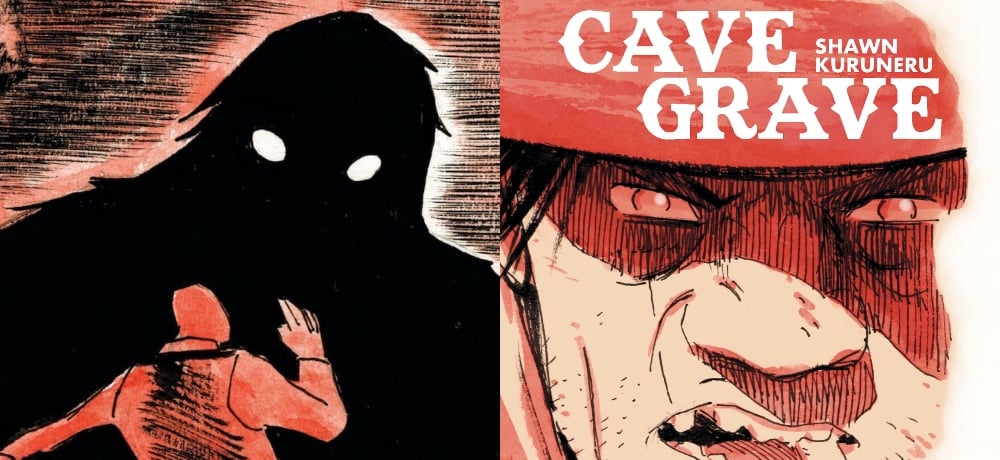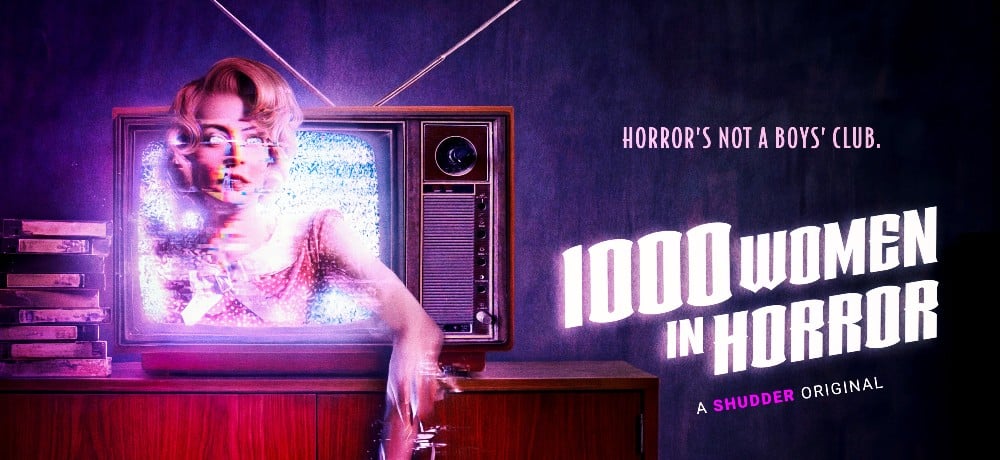





It was in 2011 when horror fans were introduced to Lucky McKee’s The Woman, with Pollyanna McIntosh taking on the eponymous character. Now, eight years later, McIntosh is stepping into a number of roles for Darlin’ (you can read my review HERE), including writer, director, and co-star. The story in this sequel picks up with The Woman years after we last saw her, where she’s spent her days playing caregiver to a young woman named Darlin’ (Lauryn Canny). She leaves the teen at a hospital, and because the staff there is ill-equipped to deal with her ferociously feral demeanor, Darlin’ begins to get reintegrated into the world, courtesy of a corrupt Bishop (Bryan Batt) who takes her in and wants to utilize the girl as his own pet project, as a means of showing the value of his all-female orphanage to his superiors in the church.
While in Austin last week, Daily Dead chatted with several key members of Darlin’, including McIntosh, producer Andrew van den Houten, as well as co-stars Lauryn Canny and Bryan Batt. The quartet discussed everything about revisiting the world of The Woman after all this time, how they took on their respective characters, and why Darlin’ was the perfect film for McIntosh to make as her directorial debut.
I wasn't quite sure what to expect for Darlin’, but I really love the way that you take these ideas that we see in the previous film with this character of The Woman, and explore them in a very different way here. And Pollyanna, I'd like to start with you, and have you talk about what the process was like for you in revisiting this character in a whole new storyline.
Pollyanna McIntosh: One hundred percent, the idea of me directing a sequel to The Woman was because I have so much respect for that film. It's not something I ever expected, nor could I ever emulate and it's not something I wanted to copy in any way, either. So it was a bit of a challenge and that's one of the reasons I wanted to write it myself, so I could make it personal and take it in a direction that makes the most sense to me.
So I was researching feral children, because I really wanted to concentrate on Darlin’. I just thought she was such a charming and vital character in The Woman and I wanted to explore her further. She has so much heart in The Woman as well. And I thought, “Okay, well, it's ten years later, what would have happened in this time if we do a real-time sequel?” Darlin’ would have been raised in the woods by the Woman, so what would happen? She's the one in The Woman who really tried to connect with the Woman early on, and just looked at her and gave her a big ole smile, and she wasn't scary to her. And so I wanted to see what would happen if she came into the city and how could I create as much conflict as possible for the Woman to get some good juicy kills in. But this is a character that lives in my bones very deeply, and going back into that character felt very natural and very comfortable.
For the cast, can you discuss your characters and how you approached your performances here?
Bryan Batt: Yes, my character definitely doesn't think he's a villain. He thinks he's right and just and a direct descendant of the disciples. He’s creative, and he’s part of this whole organization that, over the centuries, has allowed and covered up and in a way, sometimes encouraged these blasphemies and horrible behavior, which is the antithesis of religion. So, it was a difficult part to play, but Pollyanna, because she is such a great actress, that made her a really wonderful director. She has the vocabulary to draw from, to communicate properly and specifically with actors to get the performance that she wants. I really appreciate that and when someone knows what they're doing, when they have a vision, and are able to articulate it, it makes our work so easy, so easy.
Pollyanna McIntosh: Well, I remember a really great complex conversation that Bryan and I had talking about the humanity of the Bishop, because like you say, he's a real person. I think we too often paint things as black and white, and good and bad, and we know what's right and we know what's good, but how people get to the darkest places that they get to, which is not uncommon, is something that I'm fascinated with really taking a good look at. We have to look at these things.
And Lauryn, how was it immersing yourself into this character? There is a lot she is supposed to do and very little of it is vocalized, which seems like a challenge.
Lauryn Canny: Actually, the vocalized part was the hardest part for me. I really enjoyed all our chats together, talking about the growling, then getting into growling a little bit. I ended up spending most of my nights in the hotel room in Baton Rouge, just crawling around the ground. My neighbors there must have thought I was absolutely insane, because I was just screaming, doing mad stuff all the time. We had a lot of fun with it. Pollyanna was just incredible and I thought that Darlin’ was such a vulnerable sweetheart with the strength of anything I've ever known, so it was just an honor really to play her. To read that script was really like, Jesus Christ, I need to play this character even though I really don't know how I would do it.
Pollyanna McIntosh: I have to say that I think this was absolutely made for Lauryn, and I think that that's all lovely compliments, but I think you've got a great animal interior. I think there's a capacity in you and a want to really give a hundred percent and to find the truth in it, and I think that she tapped into something very real in herself in Darlin’.
Lauryn Canny: I tend to do a lot of drama, a lot of crying and really still stuff. Everything's close ups and nothing that is really physical. So that was a really hard thing, where I knew I had to be animalistic and intense, and the stakes are so high. So I had to just push through something I had never done before.
Andrew van den Houten: And to speak to that in terms of Lauryn specifically, and the character she plays, I feel like she really does become an extension of the Woman towards the end of the film. It's almost like watching her grow into the character who's raised her. She becomes this empowered woman who at the end is done, she's finished with this. And I just love the way that the characters interact together. There's not a lot of scenes at all with the two of you together in the film, so I think it's fascinating to see the journeys they both take.
I'm curious, because you've been working in the industry for years now, Pollyanna, and you've been able to work at all levels, in features and in television. How much have those experiences helped prepare you for taking on this film as a director?
Pollyanna McIntosh: Oh, it started all the way back from working with Andrew, having him direct me in Headspace and Offspring. I remember the first time we were working together, I was always watching him, learning from him, asking him millions of questions. And then every director that's allowed me to put my nose in it ever since, I was always watching them as well.
Andrew van den Houten: Just thinking about Pollyanna as an actor, and having directed her in my first feature film, this is kind of like a full circle story for us, because here we are over a decade later, and she's directing her first feature. She was always so astute and so intrigued by the process, but never afraid to come tell me if she didn't feel comfortable or understand anything. Of all the actors I've worked with, she is so on point, in terms of knowing exactly what she wants, and if she doesn't, she'll tell me right away. She's just very, very, very vocal and I love that. For me, getting to work with someone who I'm not only a great friend with, but a collaborator like this, having done so many films together, it was a natural thing to watch Pollyanna come to her own on the set and really take charge, but also go between being the actor, and then flipping the coin and suddenly being the director. It was great.
---------
In case you missed it, check here to catch up on all of our live coverage of the SXSW 2019 Film Festival, including more interviews, reviews, and horror news from Austin!